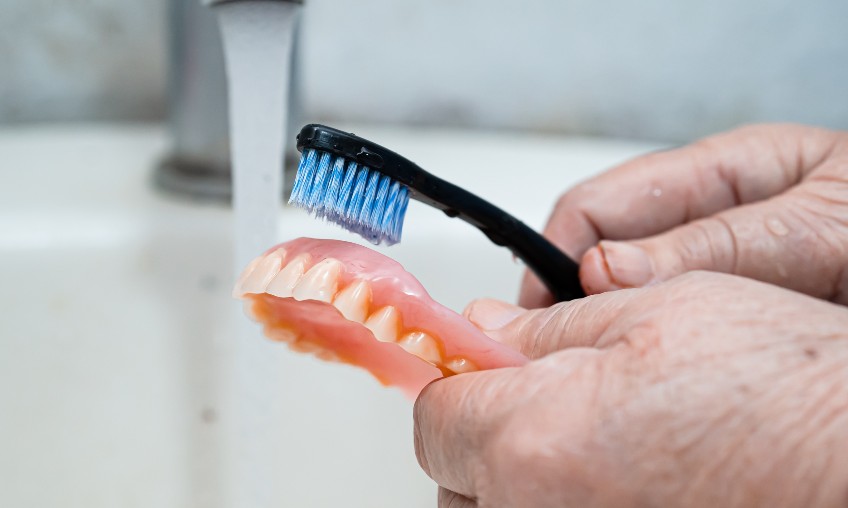
By Jay Maillet, DMD, MPH
Bodies change as time passes – including our teeth and gums. Knowing about risks and how to take care of teeth and gums can help you age well.
For example, new cavities become more likely as you age, says the American Dental Association (ADA).
Dry mouth and unhealthy gums are two common reasons for the rise in tooth decay for mature adults. But there is good news: You can relieve and prevent dry mouth, gum disease and other age-related risks.
Let’s look at common oral health challenges for mature adults and how to take care of them.
Dry Mouth in Mature Adults
Some medications can affect oral health, and there are many that reduce how much saliva you produce, says the Medical Encyclopedia of the National Library of Medicine (NLM).
Dry mouth – that is, not having enough saliva – makes it easier for bacteria to build up. That increased bacteria can lead to tooth decay.
The ADA reports that hundreds of medications can cause dry mouth, including certain medicine for allergies or asthma, high blood pressure, high cholesterol, pain, anxiety or depression, Parkinson’s and Alzheimer’s diseases. So please share a complete list of all your medications during your dental appointments.
Your dental clinician can advise you about how to help relieve dry mouth. Recommendations may include:
- drinking water more frequently
- using an over-the-counter moisturizing oral spray or mouthwash
- using a home humidifier
- avoiding food or drink that can make dry mouth worse (such as coffee, alcohol, soft drinks and acidic juice, including grape, orange and pineapple)
- using sugar-free gum or lozenges to help you produce more saliva
During an office visit, your dentist may apply fluoride gel or varnish to protect your teeth from cavities. Your dentist may also consult with your primary care doctor about your medications.
Gum Disease over 60
Many older adults have gum disease (also called periodontal disease). Gum disease is often painless until it gets to an advanced stage. By then, it can destroy the gums, bone and ligaments supporting your teeth — leading to tooth loss.
Signs of periodontal disease, according to the US Centers for Disease Control and Prevention (CDC), include:
- Gums that are red, swollen, tender or bleeding
- Gums that have pulled away from teeth
- Teeth that are loose or sensitive
- Painful chewing
To avoid or fight periodontal disease, the ADA recommends good oral hygiene and regular dental appointments.
Keeping a Healthy Mouth
The basics for healthy teeth are:
- Keep up with oral hygiene at home
- Visit the dentist at least twice per year
- Avoid food and drinks that include sugar in the first three ingredients
- Don’t vape, smoke or use tobacco
- Be very careful if you have diabetes
If you take care of someone who is aging, help them remember to take care of their teeth and gums:
- Once a day, remind them to floss
- Twice a day, remind them to brush
- Twice a year, help them visit the dentist (some dentists specialize in helping patients who have special needs)
DentaQuest, part of Sun Life U.S., works to improve the oral health of all. Click here for more helpful information oral health tips and information.
Jay Maillet, DMD, MPH, serves as DentaQuest’s dental director for Massachusetts, New Hampshire, and New York. He earned his DMD degree from Tufts University School of Dental Medicine and then went on to practice in both private practice and public health settings across New England. In addition to his clinical credentials, Dr. Maillet has also earned a Master’s of Public Health with a concentration in epidemiology from Harvard’s T.H. Chan School of Public Health.
 Preventistry Pulse Image
Preventistry Pulse Image
PREVENTISTRY PULSE
The newsletter designed for anyone who wants to improve oral health for themselves, their families, customers or communities.





